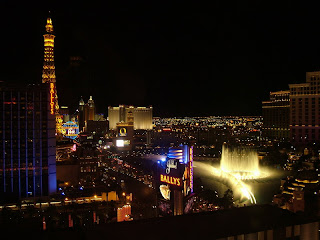
The leader of Chicago's bid for the 2016 Olympics came to an international sports gathering in Beijing to promote his city's campaign. It turned out there was another campaign delegates really wanted to talk about _ the U.S. presidential race.
"That's really on the front of mind of a lot of people here," Chicago 2016 chairman Patrick Ryan told The Associated Press in an interview. "They know more about this campaign than people from the U.S. do. It's amazing the intricate detail they have."
The upcoming change of administration in Washington figures to have a significant impact on Chicago's chances of taking the Summer Olympics back to the United States for the first time since the 1996 Atlanta Games.
The unpopularity of President George W. Bush around the world is also reflected in the International Olympic Committee, which handed New York a humbling fourth-place finish three years ago in the vote for the 2012 Games.
Ryan views the keen IOC interest in the U.S. election as a positive sign ahead of next year's Olympic vote.
"It tells me that they are very interested in the U.S.'s position in the world and how the U.S. will be viewed by the world post this election," he said. "I think it's good that the IOC decision is after the American public make their decision."
There's a certain presidential candidate who, if elected, could be Chicago's greatest asset _ the city's own Barack Obama.
"Right across the street from the Olympic Stadium, the Olympic Park _ that's where he lives," Ryan said of the Illinois senator.
Whoever wins the election, Ryan is counting on the new president to personally lead Chicago's delegation at the IOC vote in Copenhagen, Denmark, in October 2009.
"I would hope so," he said. "Each of the three candidates would be available, and each of the three candidates have said they're very supportive of the Chicago bid."
That would be a first, a U.S. president going to an IOC assembly to stump for a bid city. It's become almost expected now for heads of state or government to attend the vote.
British Prime Minister Tony Blair helped London land the 2012 Games when he traveled to the Singapore session in 2005, lobbying IOC members and outworking French President Jacques Chirac and his pitch for Paris. Russian President Vladimir Putin was widely credited with securing the 2014 Winter Games for Sochi when he went to the IOC meeting in Guatemala City last July.
"I think Mr. Blair and Mr. Putin have set a standard now," Ryan said. "I think it's fair to say if heads of state are invited that we would be able to get the U.S. head of state there."
He said Chicago has the backing of the three contenders _ Obama, Democrat rival Sen. Hillary Rodham Clinton and presumptive Republican nominee Sen. John McCain.
"I think people are clearly very intrigued by Sen. Obama's role in government in the U.S., as they are Hillary Clinton," Ryan said.
Clinton traveled to the Singapore meeting to back New York's bid.
"I think (IOC members) don't know Obama very well but they're following it closely and I think a lot of them feel they know Hillary Clinton better because they've met her," Ryan said. "Probably very few have met Sen. McCain."
Many members, however, may recall McCain as the vocal IOC critic who chaired Congressional hearings on the Salt Lake City corruption scandal in 1999. His committee accused the IOC of creating "a culture of corruption."
Chicago is one of seven candidates in the Olympic contest, vying with Rio de Janeiro, Brazil; Tokyo; Madrid, Spain; Doha, Qatar; Prague, Czech Republic; and Baku, Azerbaijan.
The IOC executive board will pare the field at a meeting in Athens, Greece, in early June. Chicago should have no problem making the cut. The big question is how many finalists the IOC will pick _ three, four or five. The others in the mix are Madrid, Rio, Tokyo and Doha.
"Some would say we're better off if there are five, others say we're better off if there are four, others say we're much better off if there are three," Ryan said. "It's sort of like the conspiracy theorists you get often in politics. ... We're assuming there'll be five."
The numbers speculation is in line with the "mystique" surrounding the whole bidding process, Ryan said, including varying views on the impact of geography, politics and lobbying strategy.
"I've never seen a business that has more different theories as to how to succeed at it," he said.
Ryan and representatives of the other bid cities came to Beijing for a conference of the Association of National Olympic Committees, which oversees the world's 205 national Olympic bodies. The powerful IOC executive board also was meeting.
"They're not interested in sitting down and talking about the bid, but they are interested in meeting you and getting to know more about the team and the city," Ryan said.
The Beijing meetings took place as turbulent anti-China protests marred the global Olympic torch relay in London, Paris and San Francisco.
"I think it's really unfortunate," Ryan said. "I was inspired by the Olympics all my life and remember reading how in ancient times battles were suspended, wars were stopped to let Olympians through or to hold their games. I think it's unfair to the athletes that people are disrupting the torch parade."
What kind of torch relay would Chicago organize if it gets the games?
"Certainly we'd want to have one that's appropriately symbolic," Ryan said. "But we haven't thought it through. I'm not sure it's totally in the host city's province either."
Maybe the new president will have a say.

















































